Detroit FGM/C case: Why two more arrests have left me feeling bittersweet
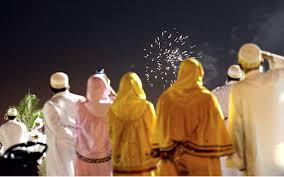
By: Anonymous Country: United Kingdom Age: 32 Today is a bittersweet day. The news of two more arrests linked to the first FGM case in the US has left me torn between elation and sadness; while a part of me feels like justice is being served to those who perform, aid and abet FGM, another part of me is saddened by the effect that these arrests have had on the perception of the community and Islam. Gone are the days when I would tell people that I belonged to the Dawoodi Bohra community and would receive the response, “Oh, the women who wear the colourful clothes with embroidery?” Now, I hear “Oh, isn’t that the community that practices FGM? I read about them in the paper.” I scroll down after reading an article online about the current FGM cases and read horrible comment after comment. Heinous things are being said about not only the Dawoodi Bohra community, but also about the wider community of Muslims, the majority of whom condemn FGM. These prosecutions are being used as the fuel to fire Islamophobia, and hurtful attacks are being made on the religion that over a billion people worldwide adhere to. Other Muslims are distancing themselves from the Dawoodi Bohra community, calling us insular and saying that we stick to ourselves. I feel a further isolation from people who believe in the same God as me and also pray towards Makkah. While I think of all of the girls and women, including myself, who suffered through this barbaric procedure, I also think of the girls who are now in protective custody, or whose mother is currently behind bars. Those children were and are innocent, and are now suffering due to the criminal actions of their parents. I question who is at fault here. While the authorities are prosecuting those who are performing, covering up and facilitating FGM, those who endorse and encourage the procedure, both privately and publicly, remain unaffected. There are still articles being posted that defend the Dawoodi Bohra community as being comprised of law-abiding citizens, yet murmurs of FGM fill the walls of masjids throughout the US and other countries where FGM is categorically outlawed. The first step to solving a problem is admitting that a problem exists in the first place, and it seems that there are some in the community who are not prepared to take this step. I feel a tenseness in the air; I quietly discuss this case among close friends and relatives who share my sentiments, frightened to openly voice my happiness that there is yet another breakthrough in ending this practice. I feel the heavy hand of the community leaders bear down upon me, and feel stifled to openly express my feelings. This is the fear that prevents others to come forward. It is real and it is suffocating.
#NIMBY Reactions to Detroit
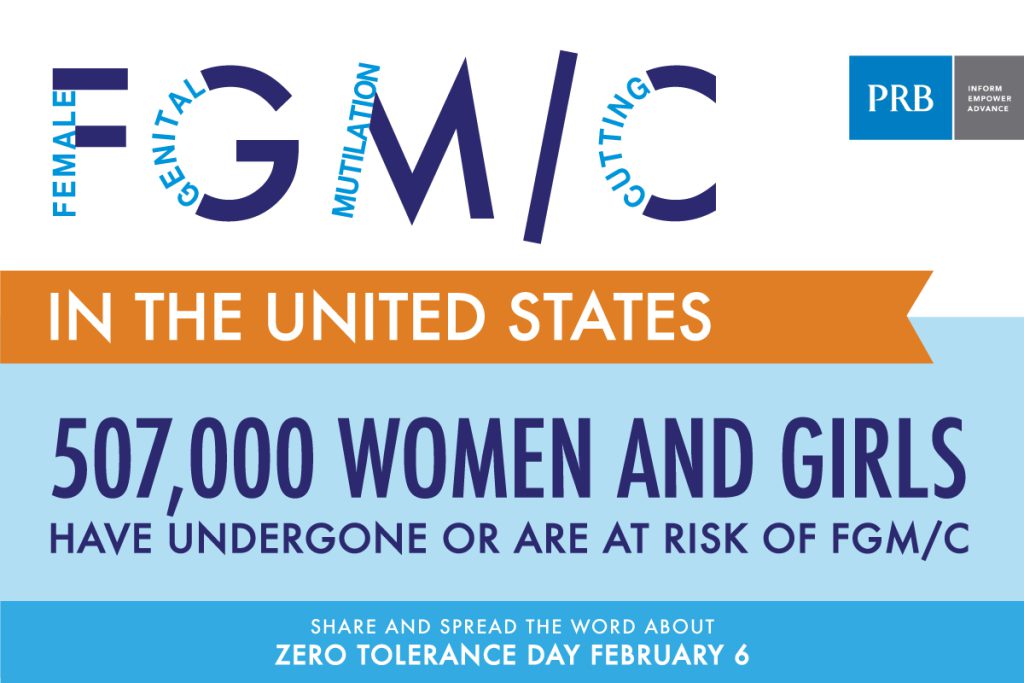
By: Anonymous Age: 32 Country: United States (Please note #NIMBY – Not In My Backyard) For over ten years, I have been famously or infamously known for speaking up about a taboo practice within the Dawoodi Bohra community in my social circles. I discovered I was a victim of female genital mutilation or cutting during college and was finally able to put into words what happened to me when I was seven years old. This time in my adult life was an extremely difficult one as I worked through the five stages of grief. A part of me was missing and gone forever. A part that I had not yet familiarized myself with or experienced while everyone around me was totally unaffected. As part of my healing process, I took to my social circles to tell my story, to raise awareness, to start a discourse. While I felt supported by some, I was met with apathy by most. I could never understand why others like me who had been victims of this practice didn’t feel the sense of loss that I did. They felt I was being “dramatic”, or that it was just part of our culture and it had not prevented them from living a normal and happy life. Others who agreed it was morally and ethically wrong, were hesitant to speak up about it or even show an alliance with me in my own grassroots efforts. Until recently, there were not many formal groups in the forefront actively working to end FGM/FGC. The increase in awareness about this issue over the last ten years is astounding. To think that the investigation of this activity had been taken up by the F.B.I. will likely be an eye-opener for those in the community who think of this as a cultural practice, not a criminal activity. When the story of the Detroit doctor being arrested for performing FGM/C first broke, I was not surprised at all. Yet I was met with several messages of shock and awe from friends and family (knowing my personal interest in this topic) asking if I had seen the news. Just last year, a similar story broke in Sydney, Australia — have we forgotten already? This prompted several jamaats or religious congregations across the world and the U.S., in particular, to send public resolutions to their members advising them not to carry out the practice in any form or else they would be subject to the laws of the land, and thus not be held liable for any individuals’ actions. What’s shocking to me is that the events in Sydney didn’t have a strong enough ripple effect for communities in the U.S. to comprehend the sincerity of governments to prosecute those performing this act. After a little bit of buzz, the onslaught of public resolutions, the contradictory statement made by the religious head of the community, everyone went back to being silent. What we’ve learned in the interim through much back and forth is that the head of the community does not condemn the practice and likely sees virtue in it. The public resolution sent by the powers that be was a liability waiver, not a condemnation of the act. Until then, devout followers wherever they are in the world will continue to follow his lead and subject their young daughters to what he deems a part of our history and “religious obligation.” The alarm over this investigation contrasts sharply with the apathy I was met with years ago. I was told: “Well, it didn’t happen to me” “Your [town] is different” “That doesn’t happen here” “You are exaggerating” “I know someone who had it done, and they’re fine” “I’ve had it done, and I’m fine” It shouldn’t have to take someone you personally know or are connected to, to go to jail for you to start paying attention. This is something that affects all of us no matter what part of the world we live in. Whatever your personal feelings are about this practice, it is time to start caring one way or another because yes, this is happening…even in your backyard.
Detroit arrest: It is time for Bohras to get serious about ending Female Genital Cutting
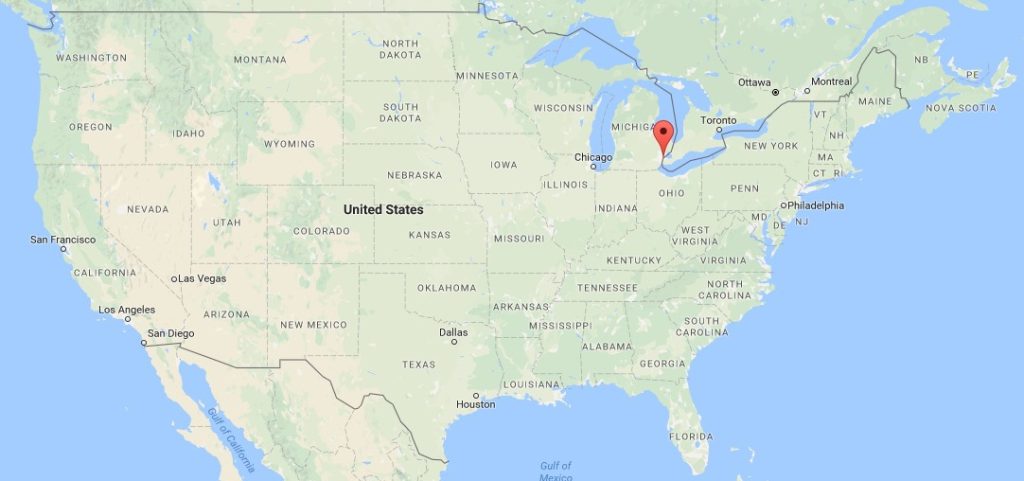
Sahiyo is shocked and truly saddened by the news that a Bohra doctor in Detroit, USA, has been arrested on charges of performing Female Genital Cutting (FGC) on minor girls in the community. While the allegations in this particular case are yet to be proven, we believe it is a serious breach of medical ethics for any doctor to perform this non-medical procedure that is categorically recognised as a form of gender-based violence and a violation of human and child rights. In countries like the USA where FGC is a criminal offence, we believe that parents, too, cannot be absolved of the responsibility to follow the law. In the light of this Detroit case, Sahiyo would like to call on the entire Bohra community to make a concerted effort to bring an end to this unnecessary and potentially harmful tradition. We believe it is also imperative for the community leadership to call for a clear, unambiguous, world-wide end to the practice of khatna, khafz or female genital cutting. What is the Detroit case all about? On April 13, 2017, a Detroit emergency room doctor was arrested and charged with performing FGC on minor girls in the United States. This is believed to be the first time someone was brought up on charges under 18 U.S.C. 116, which criminalizes FGC. According to the U.S. Federal complaint, Jumana Nagarwala, M.D., 44, of Northville, Michigan performed FGC on 6 to 8 year old girls out of a medical office in Livonia, Michigan. Some of these girls’ families reportedly traveled inter-state to have the doctor perform FGC. At this time, the complaint is merely an allegation and the defendant is presumed innocent unless and until proven guilty beyond a reasonable doubt in a court of law. The federal complaint states that phone call records and surveillance video show that in February 2017, two Minnesota girls and their parents came to Detroit for a “special girls trip”. They stayed at a hotel in Farmington Hills and ended up visiting Nagarwala, thinking they were seeing the doctor because their “tummies hurt”. Instead, the girls underwent FGC. The complaint also indicates that other children, including children in Detroit, might have undergone FGC by Nagarwala between 2006 and 2007. To see the official press release, click here. Bohras have been aware that FGC is illegal in USA Among Bohras, khatna or khafz, involves cutting a part of the clitoral hood or prepuce of a 7-year-old girl. Many Bohras have argued that this mild, ritual “nick” is not the same as the supposedly “African” practice of FGM, which can involve severe cutting of the clitoris and labia (classified by the World Health Organisation as Types II and III of FGM/C). However, the Bohra form of khatna very definitively falls under Type I FGM/C, for a good reason. However “mild”, khatna still involves the cutting and altering of female genitals for non-medical reasons. No health benefits of the practice have been recorded, and in fact several Bohra women have been increasingly speaking up about the negative physical, emotional and sexual consequences they have faced. For the past one and a half years, particularly after three Bohras in Australia were convicted under the country’s anti-FGM laws, there has been increasing awareness in the community about the fact that khatna is considered a violation of human rights by the United Nations. In countries where the practice is illegal, including the US, UK, Australia, Canada and other parts of Europe, Bohra jamaats have themselves issued clear resolution letters, asking community members not to practice khatna or khafz on girls anymore. In fact, the Detroit jamaat issued such a resolution letter to all its members on May 11, 2016. So despite all this awareness, why are some Bohras — like the parents of the girls in Minnesota — still choosing to break the law and subject their daughters to FGC? A deeply-entrenched social norm The main reason, according to Sahiyo, is that female genital cutting is a deeply-entrenched social and cultural norm for Bohras and all other communities practicing the ritual. A variety of reasons, often contradictory, are cited for following the practice: many say that khatna curbs a girl’s sexual desire and prevents promiscuity, some claim that cutting the clitoral hood enhances sexual pleasure, others claim it is done for hygiene or health. However, a recent online survey conducted by Sahiyo found that among Bohra women, the most common reason cited for khatna is “religious purposes” or tradition: most people simply continue the practice without questioning, because they believe it is a necessary cultural requirement. Sahiyo is concerned that these beliefs might be getting compounded by certain mixed messages conveyed by the community leadership. In April 2016, even as several Bohra jamaats were issuing resolution letters against khatna, community leader Syedna Mufaddal Saifuddin covertly endorsed the practice during a public sermon in India without mentioning the word khatna. He said that “the act” must be done discreetly for girls irrespective of what people say. Then in June 2016, the Syedna issued a statement to clarify his official stand on khatna. It stated that the resolution letters issued in various international jamaats were still valid for Bohras living in those nations. However, in the same statement, Syedna also endorsed khatna as a “religious obligation” necessary for “religious purity”. These ambiguous messages can be confusing to community members who may then be caught between abiding by the laws of their land and abiding by their leader’s wishes. Sahiyo therefore strongly urges the community leadership to unequivocally and unambiguously ask all Bohras across the world to now stop the practice of khatna for girls. A law is not enough Overcoming deeply-ingrained social norms like FGC is difficult, but not impossible. Sahiyo recognizes that laws are important to help reinforce that a particular practice is against human rights. However, we also recognize that to truly find sustainable change within a community and to end this form of violence, we must seek ways to change mindsets
What do Australian Bohras feel about Khatna today?

By: Anonymous Age: 32 Country: Australia Khatna is not a topic discussed very often amongst Bohras. Maybe because there is no reason to ever bring it up. However, since the case in Sydney, Australia, in which the aamil, Shabbir Mohammed Vaziri was sentenced to jail for being an accessory to Female Genital Mutilation, the topic has been brought up now and then amongst the ladies. Mostly, the conversation consists of a general curiosity as to what has happened in the Sydney jammat concerning the aamil saab and the midwife who was also found guilty in this case. I have realized that in the Melbourne jammat, people do not necessarily take the law as seriously as the people in the Sydney jammat do – mainly because the people in Melbourne have no idea about the severity of the case and its effects on the Sydney jammat. Even in Sydney, the entire ordeal was all very hushed up. People were reluctant to talk about it or even discuss anything regarding the case. So it makes sense and seems natural that people in other cities in Australia would not have much idea of what took place during the trial. As far as most non Sydney-siders are concerned, khatna is still a religious requirement that needs to be fulfilled. Most people in the Melbourne jammat have children who are still pretty young. They are not yet of age to have khatna performed. I do not know what parents will do when the time comes for them to decide if their daughters undergo it. I do not know whether they will abide by the legal laws of Australia or if they will still go ahead and have it carried out on their daughters. There is no way of knowing whether they will have this ‘cut’ carried out on them. You do not ask such questions in the jammat. The only positive outcome I can think of with regards to the case in Sydney is that it reflects the law of the land and shows that khatna should no longer take place within Australia. But if people still want to go ahead with it for their daughters, they will still travel elsewhere to have it done. Unfortunately, I feel that unless it comes from the Syedna himself that khatna should end, this practice may still be carried on by those who do not know to question it.
Sahiyo infringing copyright privilege of Anjuman-e-Burhani Trust of Sydney or an instance of online harassment and limiting blogging rights- A case of Sahiyo VS the Trust

Just in case you are wondering how the page on the resolutions banning FGC (Khatna) in Australia, United Kingdom and United States vanished from our website – read on Since 2015, Sahiyo has been operating a website to inform the public about female genital cutting (FGC) or khatna occurring amongst Dawoodi Bohra communities in India and many other countries around the globe. Our website was created with the intention to have it act as educational tool regarding the traumatic and harmful consequences of performing FGC. We also understood the importance of storytelling in engaging in social change, and allowed our blog to be a healing platform in which others can voice their own experiences of from FGC. There is strength in numbers, and we were dedicated to empowering others to be agents of social change. The website was also a resource where the general community could come to find out the latest news regarding FGC in the Bohra community, including country legislation banning FGC, human rights doctrines condemning FGC, research studies speaking on the harmful effects of FGC,interventions used to stop FGC, as well as media reports regarding the practice of FGC in various parts of the world. On February 8th, 2016, the Anjuman-e-Burhani Trust of Sydney released a notice to all members of the Dawoodi Bohra community in their jurisdiction to honor the laws of the land in which they reside and, accordingly, instructed them to refrain from carrying out the practice of ‘khafd’ or ‘khanta’ on their daughters. To see more, click here. Soon after, many additional Dawoodi Bohra jamaats in different cities around the world began issuing letters to their members, asking them to stop practicing FGC because it was against the law in those countries. Receiving these resolutions seemed like a tremendous victory, and showed that religious leaders were finally acknowledging that FGC was a harmful practice. To support the religious leaders and show the positive steps being taken by the community, Sahiyo made a page on our website to share all of the public resolutions that we were receiving from various Dawoodi Bohra jammats (congregations) throughout the world. However, in March 2016, Sahiyo received a cease and desist letter, a threat to serve legal notice to WordPress (under which www.sahiyo.com is registered) and to sue all the five co-founders individually under the breach of Digital Millennium Copyright Act (DMCA) for publishing resolution by the Anjuman-e-Burhani Trust of Sydney on banning Khatna in Australia, the letter stated that it was a copyright infringement on Sahiyo’s part to publish this resolution on our website www.sahiyo.com. Even though the letters did not refute Sahiyo and it’s co-founders’ right to free speech, specifically mentioning that we may go ahead and summarise the contents of the resolution, it clearly stated that we must take the letter down as it was an infringement of copyright protected by the DMCA: “The Letter is an original work, copyright in which subsists and belongs to the Trust and the contents of which are non-trivial.” The DMCA has been notoriously famous for being used against blogger rights and restricting their content. Many respectable organizations of international repute have fought the threat to serve DMCA or the DMCA notice in their own capacity. (Read about one such case OPG VS Diebold won by Electronic Frontier Foundation safeguarding blogger’s interest) . Receiving the letter was of course concerning for us, as we were only sharing what materials had been shared with us and continues to be shared through social media channels both in private (Whatsapp groups and e-mail) and public (Facebook, Twitter). What was more concerning was the question regarding why the religious authorities issuing these resolution letters would be concerned with sharing the good progress in ending FGC publicly? Unfortunately in April 2016, we received our informal answer. Sadly, the comments by Syedna Mufaddal Saifuddin in his most recent wa’az (sermon) in Mumbai showed that perhaps the issuing of such letters was not made in the most sincere of efforts to end FGC. The Syenda’s pro-khatna remarks indicated that the public resolutions letters were applicable to the diaspora Dawoodi Bohras in Australia, United Kingdom, and United States, only on paper. Read more here. With Sahiyo receiving the Cease and Desist Notice, an attempt to re-silence the practice of khatna had been made. While our content is what could be termed as within terms of Fair Use Policy, meant for non-commercial, educational purposes only; circumventing any legal exchange any further, we took the page consisting of the letters down. Perhaps, it was indeed something that we couldn’t legally publish on our website. Perhaps, Sahiyo had a window through WordPress’s fair use policy. The matter was not such to press further as the all pervasive social media had already guaranteed outreach of the resolutions. By shedding light on what our tiny/fledgling organization has faced, we hope to bring up other questions as well. Is this a copyright infringement or an example of limiting blogger rights? Why is it okay to have these letters widely published on the social media and not okay to have them consolidated on our website? This may be a legal conundrum that Sahiyo has accidentally stumbled into, but it is an important question for all of us to learn from.
Human Rights Day panel at New England School of Law

On March 10, 2016, Sahiyo Co-founder Mariya spoke at the New England School of Law for the event: Human Rights Day Panel: A Poignant Discussion on Female Genital Mutilation. Prior to the beginning of the event, the panel organizers played the Hindustani Times news report FGM: India’s Dark Secret to provide context that FGM/C is more global issue than previously acknowledged. In acknowledging the global nature of FGC, currently, the state of Massachusetts in the United States is in the process of passing legislation criminalizing all forms of FGC with the bill – “An Act Establishing Civil and Criminal Penalties for Female Genital Mutilation” (House Bill H1530; Senate S1116). Other speakers on the panel included members of the Massachusetts FGM Task Force who have been diligently working on the FGC issue for number of years. These members included Katie Donahue Cintolo, Women’s Bar Association and Susan McLucas, director of Sin Saunuman (Health Tomorrow) organization. Professor Dina Francesca Haynes, a human rights lawyer and professor at the New England School of Law who has worked on hundred of FGC cases also spoke.The event was presented by the International Law Society and sponsored by the Immigration Law Association, the Charles Hamilton Houston Enrichment Program, and the Center for International Law and Policy.
Before sharing your khatna story, consider your country’s own legislation against FGC

Recently, a Sahiyo Volunteer asked us a very important question regarding sharing your khatna story and potential legal ramifications against a family. We always find it tremendously encouraging and inspiring for all those who do share their khatna story with us, but at Sahiyo we want those who share their stories to be made aware of any potential legal ramifications for sharing your story publicly. This information is in no way given to discourage you from sharing your story, and you should alway consult with a lawyer to gain more specific legal advice on this issue. However, at Sahiyo, our organization does seek to be transparent and honest with all those who connect with us. Could identifying as a Bohri who has been cut thru social media or media potentially lead to legal ramifications for family or friends who live in a country where FGC has been outlawed, and that country suddenly decides to crack down on it? ALL COUNTRIES: For more information on Female Genital Mutilation/Cutting Resources listed by Country where it is known to be an indigenous practice or by populations of refugees/immigrants – See more at http://www.refugeelegalaidinformation.org/female-genital-mutilation-grounds-seeking-asylum#countrylist CANADA: For more information, please refer to Dilshad Tavawalla’s blog post on Female Genital Mutilation or Khafd/Khafz or Khatna and Canadian Laws. You can also visit Ontario Human Rights Commission – FGM in Canada UNITED STATES: This is not a simple question. It will depend on 1) If a person was cut in 1995, then it was not a crime in the U.S. or any state because the federal law against FGM/C was passed and went into effect in 1996. 2) If the person was cut in 1997, but outside the U.S., the federal law was in effect, but only for FGM/C committed in the United States. Very few states had laws that early on to bring an FGM/C case. 3) If the person was transported from U.S. soil for the purposes of being cut and was cut abroad on or after November 2013, then the vacation cutting provision applies. 4) There is also the issue of statute of limitations. How long after the cutting can a criminal or civil case be brought under federal or state law? Is the Statute of Limitation “tolled” (put on hold or frozen) until the 18th birthday and then starts running? If yes, how long after the 18th birthday does the person or prosecutors have? 5) The federal law applies to both children and adults within its jurisdiction. The person who underwent FGM/C or someone legally allowed to act on their behalf would have to bring the charge or bring it to the attention of authorities who would bring the charge. That legal person could be a parent, guardian or court-appointed advocate. If you are concerned, ask the participants when and where the cutting took place to see if it was illegal in the United States. That’s a start. For more information, please refer to Equality Now’s Fact Sheet – Female Genital Mutilation in the United States. Disclaimer: No Legal Advice Intended. This blog includes general information and may reference topics on legal issues and developments in the law. Such materials are for informational purposes only and may not reflect the most current legal developments. These informational materials are not intended, and must not be taken, as legal advice or legal opinion on any particular set of facts or circumstances. You need to contact a lawyer licensed in your jurisdiction for advice on specific legal issues problems.
Notices by Sydney, Melbourne and London’s Anjuman-e-Burhani Trusts on ‘Khafd’ (Khatna) or Female Genital Cutting
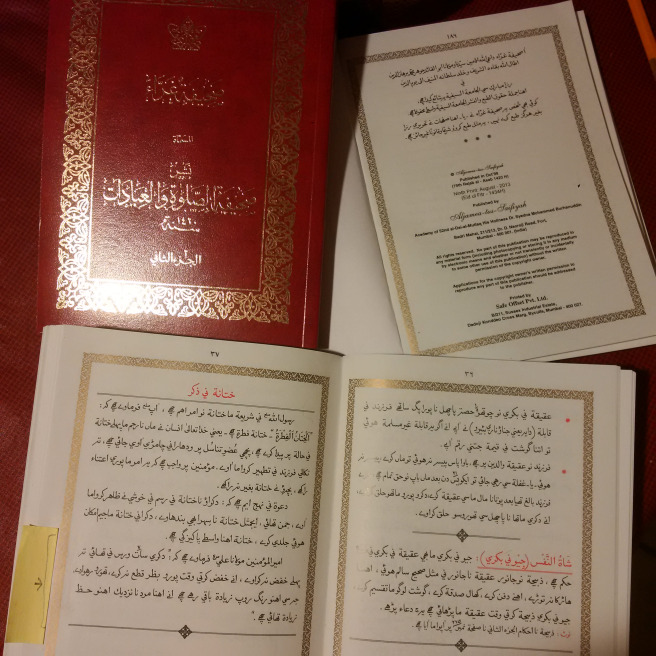
On 8th February, 2016, the Anjuman-e-Burhani Trust of Sydney held a meeting and on 9th February, a notice was released to all members of the Dawoodi Bohra community in their jurisdiction to honour the laws of the land in which they reside and, accordingly, instructed them to refrain from carrying out the practice of ‘khafd’ or ‘khatna’ (also known as female genital cutting) on their daughters. In their statement, the Sydney jamaat quoted the Prophet Mohammed Rasulullah (SAW) to ask the community members to respect the laws of their respective countries, like they would their religion, in the lines below: “Hubbul watan minal imaan”, which means “love of the land of abode is part of faith.” The Sydney jamaat also informed the community that ‘khafd’ or ‘khatna’ is classified as Female Genital Mutilation (FGM) under section 45 of the Crimes Act of NSW and that the practice would ‘…be interpreted to fall within the specific laws in relation to FGM in other states or territories of the Commonwealth of Australia.’ Clearly stating that ‘khafd’ is illegal, irrespective of the place where where it is carried out, Australia or overseas, community members are advised in the strictest terms to not engage in this illegal act. (Letter can be accessed on the Sydney jamaat website: http://www.sydneyjamaat.com/site/login) This was followed by another notice on 10th February by Melbourne’s Anjuman-e-Burhani Trust, which was along the same lines as Sydney. Letter to Melbourne jamaat by the Anjuman-e-Saifee (Melbourne) On 13th February, the London Anjuman-e-Burhani Trust held an ‘extraordinary’ meeting, whereby they passed a resolution instructing all community members to follow in the footsteps of their Australian brothers and sisters and abstain from the act of ‘khafd’. In line with Australia, they quoted the 53rd Dai al-Mutlaq, HH Dr Syedna Muffadal Saifuddin (TUS), who used the Prophet’s words to drive the message home, and emphasized on the seriousness of the crime of performing FGM on a minor which has resulted in the conviction of three (3) members of Dawoodi Bohra community in Australia by the Supreme Court of New South Wales. In their statement to community members, they have highlighted the new guidelines on Safeguarding Children from female genital mutilation (October 2015) and said in no uncertain terms that ‘khafd’ is against England, Wales and Northern Ireland’s Prohibition of Female Genital Mutilation Act of 2003 and Scotland’s Prohibition of Female Genital Mutilation Act of 2005. **Also, on the website of the Home Office and the Department of Education, UK government, there are guidelines on Mandatory reporting of female genital mutilation: procedural information (October 2015), which, unfortunately, has not been mentioned in the statement released by London’s Anjuman-e-Burhani. A welcome step and wise decision, indeed, by our community leaders from Sydney, Melbourne and London. However, it is surprising to note, like Dilshad Tavawalla did in her blog on 17th February that “All men in the forum were present to reflect, interact and deliberate about the very personal, private, delicate, sensitive, traumatic and grave issue of “Khafz” (Khafd) or Female Genital Mutilation (FGM) impacting the lives, physical and psychological integrity, and general well-being of thousands of Dawoodi Bohra girl children and women.” And, she asks a most pertinent question that is on all our minds: “Why no women?” In addition, all these statements come as a shock due to the contradictory nature of the fact that the practice of ‘khafd’ finds mention in the Dawoodi Bohra community 3-volume publication called ‘Sahifa’ (picture attached of the Ninth Print edition: August 2013) that is published by the Aljamea-Tus-Saifiyah – Academy of the 52nd Dai al-Mutlaq, HH Dr Syedna Mohammed Burhanuddin. In the book, as pointed out by Ms Tavawalla in her blog on 16th February, “the passage enjoins the performance of ‘khafd’ or Female Genital Mutilation on Dawoodi Bohra girls at the age of seven (7) years and the recommended extent and manner for performing it.” Sahifa – Published by ALJAMEA-TUS-SAIFIYAH Academy of 52nd al-DAI-AL-MUTLAQ. These are editions in 9th Print: August 2013 (Eid ul Fitr – 1434H). Three (3) volumes. It is clear that despite these statements counseling against the practice, not all Dawoodi Bohras subscribe to the decision made by the jamaats of Sydney, Melbourne and London. I will direct you to the 17th February blog of a Dawoodi Bohra woman named Rashida Mustafa, who passionately advocates for the practice in the name of tradition. It is truly disturbing to read someone argue in favour of a violent ritual that can leave little girls with terrible and indelible, lifelong scars. Even so, it is obvious from the sacntimonious tenor of Rashida Mustafa’s blog that the letters from any of three jamaats – Sydney, Melbourne and London never reached her attention. As Dilshad Tavawalla says in her blog, Rashida Mustafa must “[…] be afraid – very afraid, […]”. The laws in UK, USA and Canada considers anyone who aids, abets or counsels the carrying out of FGM to be a party to the offence, and hence punishable under those respective countries’ laws (even in countries where the practice is legal, according to the FGM Act, 2003, in the UK). And, last but not least, there remains the big question of eliminating this practice in India – home to the vast majority of Dawoodi Bohras – and where there is no law per se against ‘khafd’.** What can we expect from our learned brethren at the Anjuman-e-Shiate Ali, which administers and conducts all affairs of the Dawoodi Bohra community in Mumbai? Can we hope that a notice in line with the praiseworthy and proactive statements against ‘khafd,’ like those released by the Sydney, Melbourne and London jamaats (all based in countries where there are strong laws banning FGM/C), will follow suit? NB: In a recent article by Anahita Mukherji from the Times of India published on 25th February one can read about the existing laws that can be used against ‘khatna’ in India. Noted lawyers Dilshad Tavawalla and Flavia Agnes were quoted in the article and they pointed out specific sections in the Indian Penal Code and the Protection of Children from Sexual Offences
Human Rights Day Panel at New England School of Law

On March 10th, 2016, Sahiyo Co-founder, Mariya Taher, will be speaking on the Human Rights Day Panel at the New England School of Law in Boston. More details are below: Topic: A Poignant Discussion on Female Genital Mutilation Date: March 10, 2016 Time: 4:00 pm Location: New England School of Law – 154 Stuart St, Boston, MA 02116; Cherry Room Guest Speakers: Susan McLucas, Mariya Taher, Katie Cintolo, Dina Haynes Sponsored By: International Law Society, Immigration Law Society, Charles Hamilton Houston Enrichment Program, Center for International Law and Policy
Mariya Ali – London Bohra Resident – “Last Generation to Lose a Pinch of Our Skin”
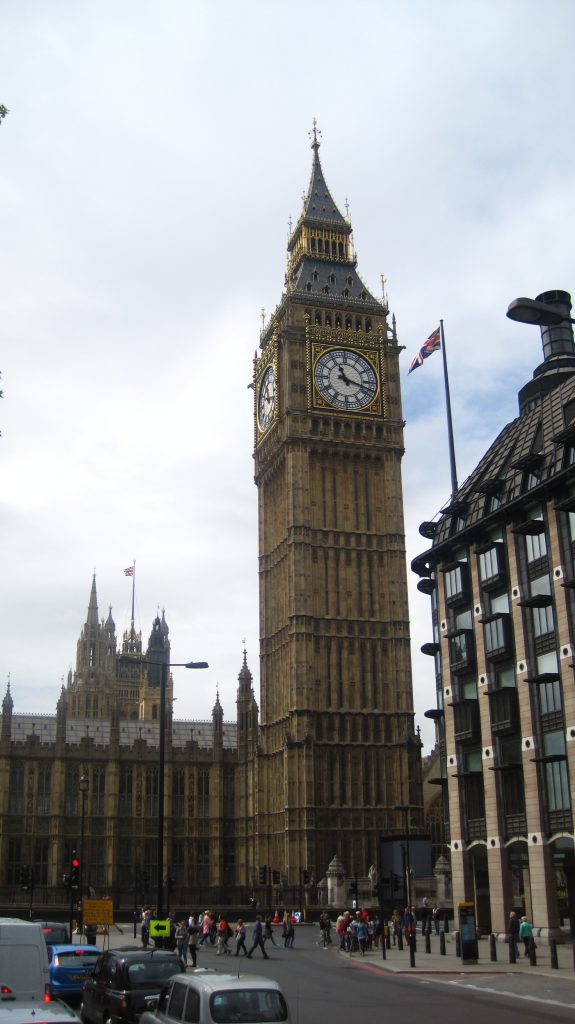
By Mariya Ali I was born and raised in London, England and have been a lifelong member of the London Jamaat. Although FGM has been illegal in the United Kingdom since 1985, myself and many other girls have been subjected to this barbaric ritual, despite it being outlawed. After the Australian court case and subsequent convictions for circumcising two minor girls, the Sydney Jamaat issued a notice urging followers not to circumcise their daughters in Australia or abroad. On February 15th, the London Jamaat followed suit and issued a similar notice. The letter, similar in wording to the one that was issued by the Sydney Jamaat, points out that Islam mandates that its followers be loyal, contributing citizens who abide by the law of the land in which they reside. Despite the UK law explicitly stating that it is illegal to take a UK citizen outside of the UK for the purpose of circumcision, I know of many minors who were circumcised while abroad. It is important to note that this has also been addressed by the letter issued by the London Jamaat. It states that “You must not take your children outside UK for purpose of khafd as that is equally prohibited by law”. The London Jamaat is the first Jamaat after Sydney to publicly discourage followers from performing this procedure on girls. Although this is a huge step in the right direction, the notice that was issued does not condemn the practice itself, but rather it discourages followers from breaking the law. As a woman who has undergone this barbaric ritual, and on behalf of all of the other women who have suffered, do suffer and continue to suffer, I hope that this is the first of many Jamaats to follow suit and finally stamp out this practice. I thank the decision makers of the London Jamaat for taking this step and I sincerely hope that my generation is the last generation to lose a pinch of our skin.
